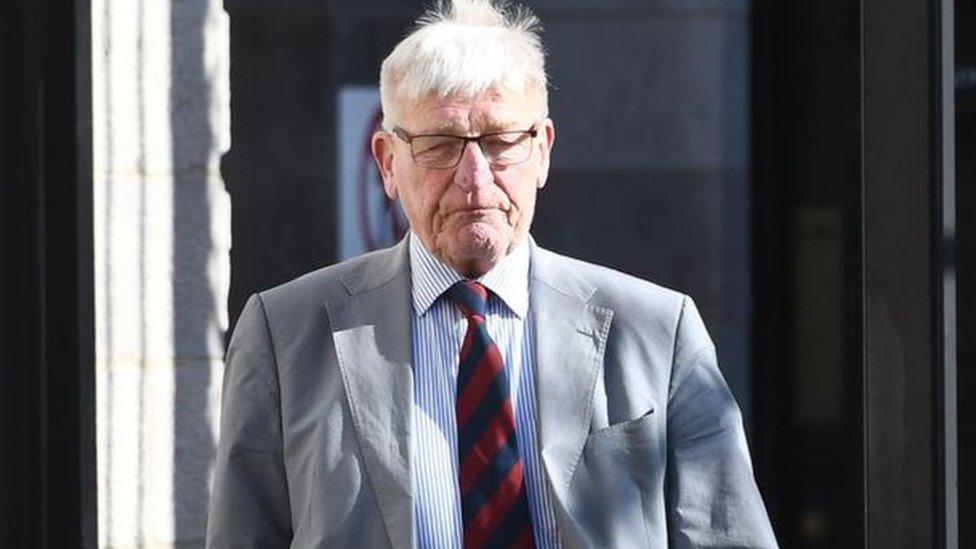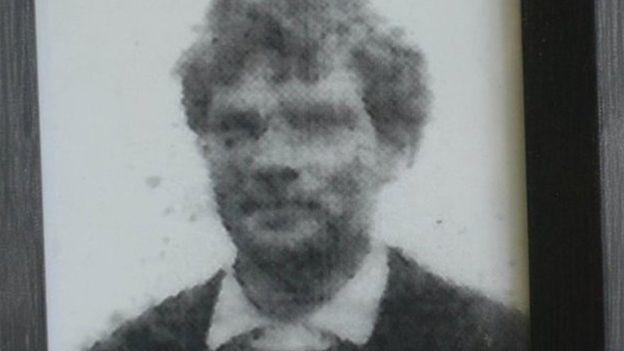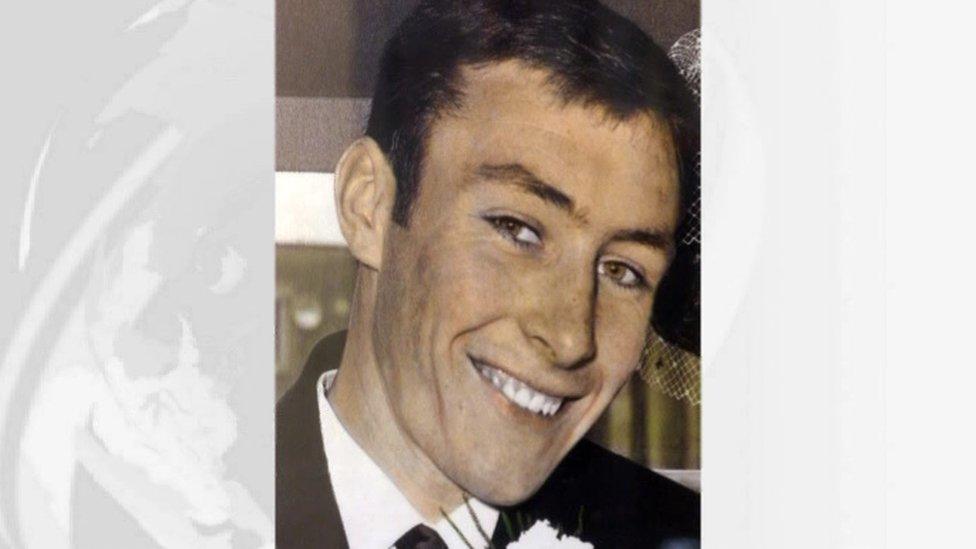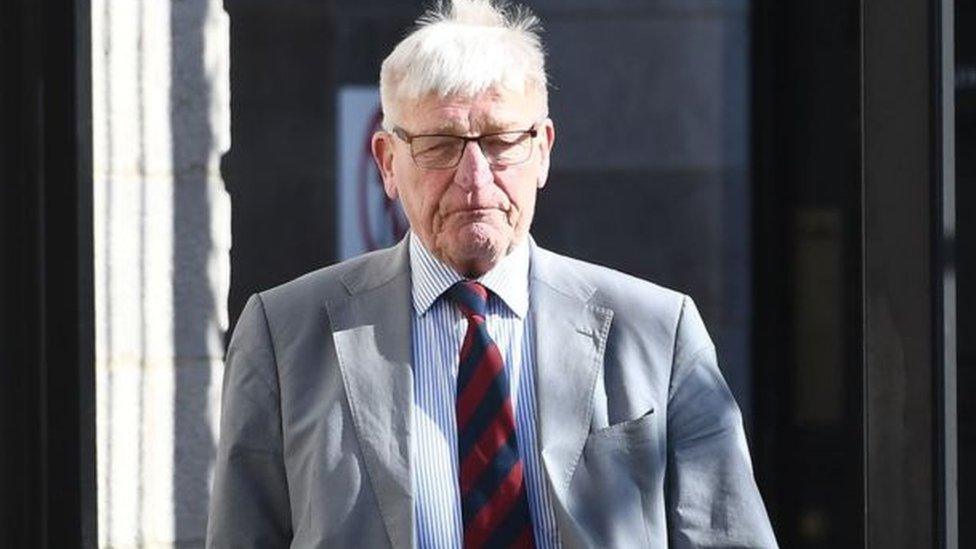Ex-soldier wins right to appeal against Diplock trial
- Published

Dennis Hutchings from Cornwall was charged with attempted murder
Former British soldier Dennis Hutchings has been given leave to appeal to the Supreme Court against a decision to try him in a Diplock Court.
A Diplock Court is a non-jury trial heard by a judge only.
Mr Hutchings is due to be tried for attempted murder in connection with a fatal shooting in 1974.
John Pat Cunningham, 27, who had learning difficulties, was shot in the back as he ran away from an Army patrol near Benburb, County Tyrone, in 1974.
Mr Hutchings, 77, from Cawsand, Cornwall, has denied charges of attempted murder and attempting to cause grievous bodily harm.
He was told in May that his appeal that the case was an abuse of process had failed.

John Pat Cunningham was 27 at the time of his death, but had a mental age of between six and 10
Mr Hutchings has made the case it was never his intention to kill or injure Mr Cunningham, but that he was firing warning shots to get him to stop.
The proceedings are currently at an interlocutory stage before the Crown Court in Belfast.

What is a Diplock court?
The non-jury system was named after Lord Diplock, a former senior judge and Law Lord.
During the height of the Troubles, he chaired a commission that examined proposed changes in the administration of justice in an attempt to deal with terrorist offences.
The commission published its report in December 1972 and non-jury courts were introduced the following year.
The introduction of Diplock courts was opposed by civil liberty organisations and both nationalists and republicans.
At their peak, more than 300 trials per year were held without a jury.
The government technically abolished the old Diplock courts in 2007.
However, the government gave the director of public prosecutions temporary power to decide that exceptional cases should be tried without a jury if he believed there was still a risk of jurors being intimidated.

Meanwhile, two former paratroopers charged with murdering an Official IRA man 46 years ago have cleared the first stage in their High Court battle to face trial by jury.
The pair, known only as Soldier A and Soldier C, were granted leave to seek a judicial review of a decision to have their case heard by a judge sitting alone.
Both men are accused of killing Joe McCann in the Markets area of Belfast in April 1972.
The defendants, now aged in their sixties, have been given anonymity amid fears that identification could put their lives at risk.

Joe McCann was shot near his home in the Markets area of Belfast in April 1972
Legal proceedings were issued by the ex-paratroopers after the Director of Public Prosecutions issued a certificate for a non-jury trial.
Trials by judges sitting alone were meant to deal with potential issues of jury tampering in cases involving paramilitary organisations, their lawyers contend.
With leave to apply for judicial review granted, proceedings have been put on hold pending the outcome of Mr Hutching's challenge.
Soldier A and Solider C's case have been adjourned until that verdict is delivered.
- Published24 November 2017

- Published10 May 2018
